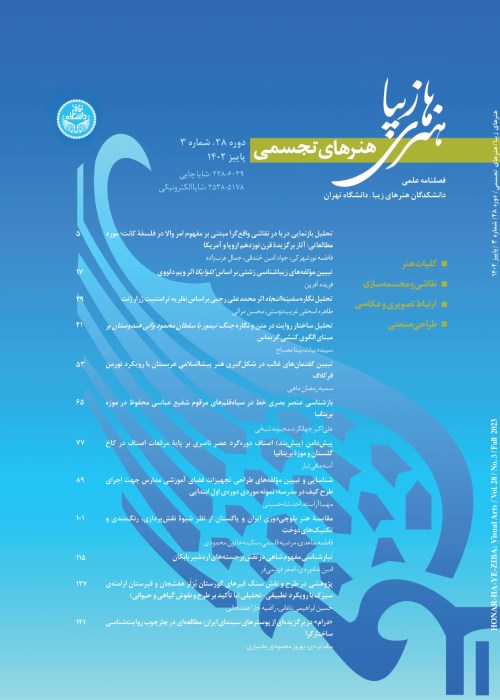Functionalities of Ascension In Mythological Narratives
Author(s):
Abstract:
Ascension, as a recurring theme in narrative and visual arts of non-theistic and theistic communities (monotheistic or polytheistic) from East to West of the ancient world, reveals concern and urge of man to communicate with the supra sensible world. The connotation of ascension, however, broadly varies from the flight of shamans spirit, a hero transformation to god, and a trip to heaven and hell, to the self-purification and enlightenment. Ascension embraces a broad variety of notions in the mythical narrations, with widespread implementations in the form of paintings, inscriptions, and seals. The instances of ascension in different cultures are distinguished typically by their particular rituals, means and accessories, as well as the motivations and ultimate goals of the journey. In this paper a selection of mythical texts and images of ascension from ancient civilizations such as India, China, Persia, Mesopotamia, Egypt, Greece and Rome are probed to determine the constitutive essences of ascension. The inquiry about these essences includes queries on what, how, and why. In the underlying case, the first query is about the characteristics which distinguish ascension from other journeys, where as the second and the third question the possible ways it may be fulfilled and its motivations or goals. This is done based on a data which is culled from library documents and manuscripts, and approached by comparative and explanatory methodology. The objective is to persuade the interrogative, transcendental and inferential functions for these trips. Through interrogative functionality, the backgrounds and motives of the journey are deciphered, while the transcendental functionality would engage in the methods and limitations of contact with the upper world. Finally, the results and achievements of ascension, in both individual and social levels, are determined by inferential functionality. The functional outcomes of ascension are being classified into three factions of interrogative, transcendental, and consequential functions (the latter, being divided into two subcategories of social-ritual and individual-psychological consequences). A detailed analysis of such functional outcomes could enhance our insight of the interrelations between man and god(s) in world civilizations, and pave the way to a better understanding and assessment of the worldview of their current predecessors. The diversity of moods in man-god relationships in eastern and western civilizations echoes the difference between the two cultures in their perception of nature, the stance of man among other creatures, and the manner and degree in which god(s) are concerned about mans fate. In the West, man is deemed as gods opponent and so is obliged to protect himself through dominance on nature and acquiring the strength to change his doomed fate. This could be one of the reasons how the humanism and pragmatism found a fruitful ground to grow in the West. In the East, on the other hand, we deal with a mutual man-god liaison, in the light of which, man precepts nature as a habitat and gods as patrons and protectors of nature, and yearns for perfection through proximity to gods and their will. As a result, the theistic worldviews have gained more gravity.
Keywords:
Language:
Persian
Published:
Journal of Fine Arts, Volume:20 Issue: 4, 2016
Pages:
1 to 13
magiran.com/p1517406
دانلود و مطالعه متن این مقاله با یکی از روشهای زیر امکان پذیر است:
اشتراک شخصی
با عضویت و پرداخت آنلاین حق اشتراک یکساله به مبلغ 1,390,000ريال میتوانید 70 عنوان مطلب دانلود کنید!
اشتراک سازمانی
به کتابخانه دانشگاه یا محل کار خود پیشنهاد کنید تا اشتراک سازمانی این پایگاه را برای دسترسی نامحدود همه کاربران به متن مطالب تهیه نمایند!
توجه!
- حق عضویت دریافتی صرف حمایت از نشریات عضو و نگهداری، تکمیل و توسعه مگیران میشود.
- پرداخت حق اشتراک و دانلود مقالات اجازه بازنشر آن در سایر رسانههای چاپی و دیجیتال را به کاربر نمیدهد.
In order to view content subscription is required
Personal subscription
Subscribe magiran.com for 70 € euros via PayPal and download 70 articles during a year.
Organization subscription
Please contact us to subscribe your university or library for unlimited access!



